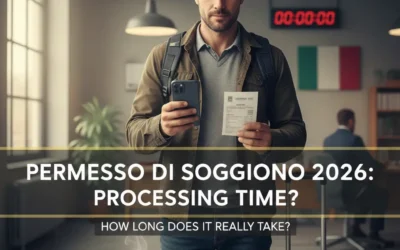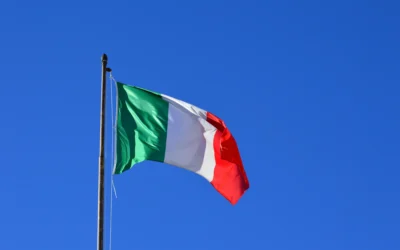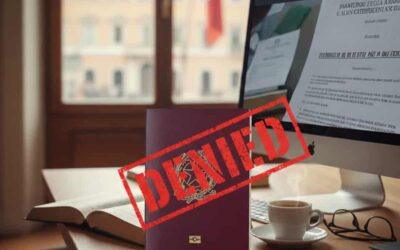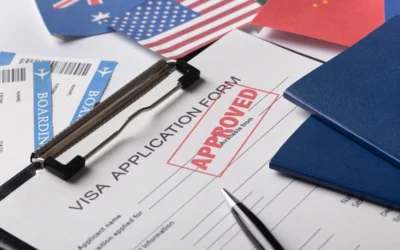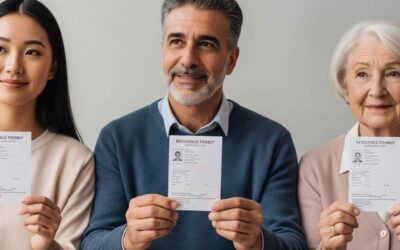Introduction to Decree-Law No. 146/2025
On October 3, 2025, Decree-Law No. 146/2025 was published in the Official Gazette (Gazzetta Ufficiale) and entered into force on October 4, 2025. The decree has since been transmitted to the Italian Parliament for conversion into law. As with all decree-laws, Parliament has 60 days to approve and convert the measure, during which it may introduce amendments. Should the decree not be converted, it would automatically lapse.
The decree introduces significant reforms and updates to Italy’s immigration framework, particularly regarding employment-based entry through the quota system, commonly known as the decreto-flussi. This system establishes numerical limits for foreign nationals eligible for work permits and specifies the timeframe during which applications can be submitted. Certain categories of workers remain exempt from these numerical caps, including intra-company transfers, highly skilled professionals, executives and managerial staff assigned to Italian branches of foreign companies, university lecturers and professors, translators and interpreters, and professional nurses.
Changes to Italy’s Quota System (Decreto-Flussi)
The decree strengthens the framework of Italy’s quota system by confirming and expanding measures introduced under previous legislation. A major innovation is the full implementation of pre-filled online work permit (Nulla Osta) applications. Private employers are limited to submitting a maximum of three applications under the quota system unless they work with an authorized organization.
The timeline for the adoption of work permits now starts from the moment a request is assigned to the quota, rather than the date of submission. In addition, verification of employer declarations, previously limited to standard quota-based applications, has been formally extended to non-quota entries, including volunteer programs, highly skilled workers, and intra-company transfers. This change enhances transparency and accountability in the application process.
Pre-Filled Applications and Processing Times
By allowing employers to pre-fill applications online, the decree streamlines the process and reduces delays. The restriction of three applications per private employer ensures fair access to the quota system while maintaining efficiency. Overall, the measure strengthens procedural clarity and predictability for both employers and applicants.
Enhanced Worker Protections and Social Safeguards
Decree-Law No. 146/2025 enhances the rights and protections of foreign workers. Foreign nationals are now allowed to work while awaiting the conversion of their residence permit, not only during issuance or renewal.
The validity of residence permits for victims of trafficking, domestic violence, and labor exploitation has been extended from six months to twelve months. Furthermore, these individuals are now entitled to social inclusion benefits under Italian welfare programs, reflecting a broader commitment to social protection and integration.
Combatting Labor Exploitation and Governance
To address labor exploitation, the decree establishes the Caporalato Table as a permanent coordinating body. Participation is now open to legally recognized religious organizations that provide support to vulnerable workers.
By extending verification measures to non-quota applications, the decree reinforces transparency and accountability across all employment pathways for foreign nationals. These changes demonstrate Italy’s commitment to protecting workers and preventing exploitation.
Non-Quota Entries and Multi-Year Planning
The decree confirms a special provision allowing up to 10,000 annual entries outside the standard quota system for workers in the social and healthcare sectors. This measure targets those providing care for elderly individuals over 80 years old or persons with disabilities and has been extended through 2028.
Previously, ministerial decrees for young foreign volunteers were issued annually. Under the new decree, these decrees will be issued once every three years, aligning volunteer programs with long-term planning and offering greater stability for organizations and applicants.
Family Reunification Updates
The decree harmonizes Italy’s family reunification process with European standards by extending the maximum processing time for entry clearances from 90 to 150 days. This ensures greater consistency with EU regulations while providing clear timelines for families seeking reunification.
Conclusion: A Modern Framework for Italian Immigration
Decree-Law No. 146/2025 represents a significant step toward a more orderly, transparent, and integrated immigration policy in Italy. By combining digitalized procedures, extended social protections, and multi-year planning, the decree establishes a modern framework for managing migrant labor. These measures align with European strategies for regular entry, labor protection, and the prevention of exploitation, making Italy’s immigration system more predictable, fair, and efficient for both employers and workers.


